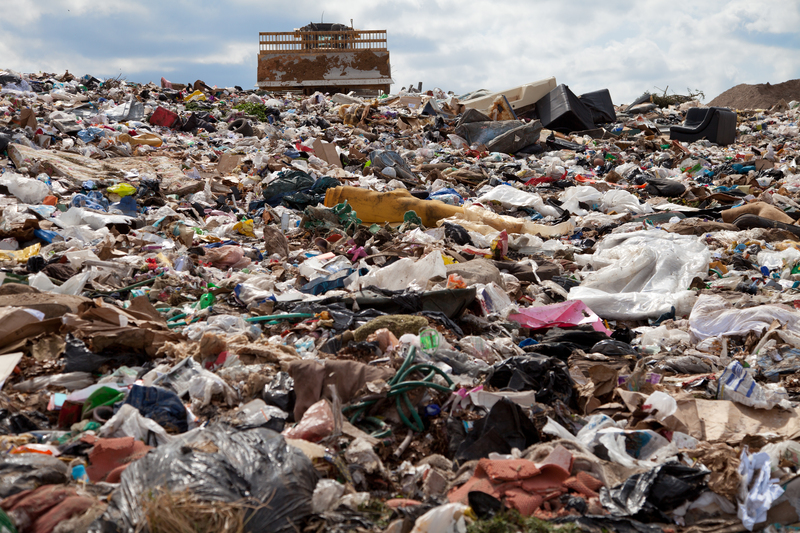Save Money Easily by Managing Your Bulky Waste Items Wisely
Do you have large items cluttering your home and taking up valuable space? From old furniture and malfunctioning household appliances to broken mattresses and outdated electronics, handling bulky waste efficiently can be daunting. However, with smart strategies, not only can you maintain a clean and organized space, but you can also save money easily by managing your bulky waste items wisely.
This comprehensive guide will teach you the best methods for bulky waste disposal, practical recycling tips, and how to turn your trash into cash. You'll also learn about the environmental impacts of improper waste management, and how local regulations impact your options. Let's dive in and explore how you can benefit from bulky waste management today!

Understanding Bulky Waste: What Qualifies?
Before you can effectively manage your bulky waste items, it's crucial to understand what qualifies as "bulky waste." Common bulky waste items often include:
- Old furniture: Sofas, wardrobes, dressers, tables, chairs
- Large household appliances: Refrigerators, washing machines, ovens, dryers
- Mattresses and bed frames
- Carpets or large rugs
- Electronics: Televisions, computers, monitors
- Outdoor equipment: Lawnmowers, grills, patio furniture
Anything too large or heavy for regular curbside trash collection is generally considered a bulky item. Mismanagement of these can lead to extra landfill fees, fines, or unnecessary spending. By knowing exactly what counts, you can approach removal smarter, cheaper, and more efficiently.
Why Managing Bulky Waste Matters
1. Save Money by Avoiding Extra Fees
Many municipalities charge extra for the disposal of large waste items. Some even issue fines for improper curbside dumping. By taking proactive steps, homeowners can skip these fees--putting money back in your pocket rather than paying for unnecessary collection services.
2. Environmental Benefits
Properly managing bulky waste helps reduce landfill clutter and environmental impact. Items like electronics and appliances often contain hazardous materials, which, if not processed correctly, can leach toxic chemicals into the soil and groundwater.
3. Space Optimization and Quality of Living
A clutter-free environment promotes well-being and increases your home's value. By clearing unused items, you regain valuable living space and may even identify opportunities to upcycle or repurpose old items, saving on future purchases.
Creative Ways to Manage Bulky Waste Items
1. Donate to Charity
One of the easiest and most rewarding strategies is to donate large items to local charities, thrift shops, or shelters. Many organizations even offer free pick-up. Donating doesn't just help those in need--it can also offer you tax deductions, effectively saving money for your household.
2. Sell or Give Away Online
You'd be surprised at how many people are looking for secondhand goods. Use platforms like Facebook Marketplace, Craigslist, OfferUp, or Freecycle to sell or give away bulky waste items. This not only declutters your space but can generate a bit of extra cash--or at least ensures the items don't end up in a landfill.
- Take clear, well-lit photos of your items.
- Write honest item descriptions--disclose wear and tear.
- Mention if the buyer must pick up the item, which encourages quick and easy disposal.
3. Host a Garage Sale
Garage or yard sales are effective ways to manage bulky possessions that still have some life left in them. This brings the community together and develops an instant solution to your clutter, all while earning you extra money. Consider offering bulk discounts, which encourage buyers to take more items at once.
4. Repurpose and Upcycle
Get creative by giving new life to old items:
- Turn an old dresser into a bathroom vanity or entry table.
- Convert a broken fridge into a storage cabinet for your garage.
- Use bed slats to build garden planters or shelving units.
There are countless upcycling projects online tailored to bulky items--this not only keeps more waste out of landfills but also saves you money on buying new furniture and decor.
5. Contact Local Waste Management Services
If you're left with items you can't repurpose or sell, it's time to schedule a bulky waste pickup with your local waste management provider. Explore their guidelines, fees, and disposal days. Often, cities offer one or two free bulky pickups each year--plan ahead to maximize these free services!
Optimize Savings: Bulky Waste Collection Tips & Hacks
Make the most out of your resources by following these tips when managing large items:
- Schedule pickups in advance to coincide with spring cleaning or moving dates.
- Group multiple items for a single pickup--often, the cost is based per visit, not item count.
- Check with your neighbors to see if they have bulky waste needing removal--sharing pickup costs can save everyone money.
- Disassemble or compress items to fit within size limits defined by your waste management provider. Smaller, tightly packed bundles can sometimes skirt extra fees.
Rent a Dumpster Only as a Last Resort
While renting a dumpster is convenient for larger renovation projects, it can be costly. Bulk item pickup or recycling centers often provide a cheaper alternative for singles and small families. If you must rent a dumpster, compare rates, and fill it efficiently to get the most out of your investment.
Know Your Local Bulky Waste Policies
Every city or municipality has different rules about handling bulky waste. Some may offer free curbside pickups, while others require you to deliver items to a transfer station. Ignorance isn't bliss here--violating regulations can lead to hefty fines that quickly erase any cost savings. Always check your city's website or waste management office for up-to-date procedures.
The Environmental Angle: Recycling Bulky Waste
Sustainability is a top concern with bulky waste. Not all waste is created equal--many items, especially electronics and appliances, contain valuable or hazardous components which should be processed professionally.
Find Local Recycling Centers
Most cities provide a list of recycling centers that accept large items, including:
- Appliances: Some contain metals, plastics, and refrigerants requiring special disposal methods.
- Electronics: E-waste must be recycled properly to recover materials and prevent toxic pollution.
- Furniture: Wood and metal parts can often be separated for recycling or reuse.
Using these centers is not just responsible--it can also be free or cheaper than landfill disposal, helping you keep your costs down.
Scrap Metal and Specialty Recyclers
Metal bed frames, broken appliances, and even certain electronics can be sold to scrap yards. Contact your local scrap metal buyer for current rates and restrictions. This is a smart way to save money while disposing of bulky waste, as you may even earn a small payment for your effort!
Reducing Bulky Waste: Prevention is Better than Cure
One of the best ways to save money and minimize hassle is by preventing bulky waste accumulation in the first place. Here's how:
- Buy quality, not quantity. Invest in durable, long-lasting furniture and appliances, even if the upfront cost is higher. It pays off over time by reducing replacement needs.
- Opt for multi-functional items--like sofa beds or extendable tables--that reduce the need for extra pieces down the line.
- Regularly declutter to keep tabs on large items before they reach the end of their usable life.
- Consider renting or borrowing rarely used items instead of buying. For example, platforms now offer short-term rentals for barbecue grills, party tables, or oversized tools.
Practical Case Study: Turning Bulky Trash into Cash
Let's illustrate how you can save money by managing bulky waste items efficiently with a real-world scenario:
- Jane moves to a new home. She has old sofas, mattresses, and a large refrigerator to get rid of.
- She donates mattresses to a local shelter (free removal plus a tax deduction).
- Her sofas, though worn, are listed online for free--picked up by a neighbor within a day (no disposal fees).
- The refrigerator goes to a scrap yard, earning her $25 for the metal components.
- Jane then schedules her city's annual bulky waste pickup for remaining junk, bundling it all for efficient removal--no fines, no fees, and no waste left behind.
By following these steps, Jane avoids landfill charges, saves money, and contributes to her community while keeping her property clean and organized.

Summary: Key Takeaways for Smart Bulky Waste Management
- Know what qualifies as bulky waste--furniture, appliances, mattresses, and more.
- Maximize savings through donation, resale, and creative reuse.
- Collaborate with neighbors for pickup and hauling to split costs.
- Be aware of local policies to avoid violations and fines.
- Seek out recycling and specialty disposal centers for hazardous or valuable materials.
- Prevent bulk buildup through mindful purchasing and regular decluttering routines.
Conclusion: Start Saving Money and Protecting the Planet
The challenge of bulky waste is an opportunity in disguise! With these practical tips, you can save money easily by managing bulky waste items wisely. Whether your goal is to declutter your home, eliminate extra fees, or make a positive environmental difference, smart management is the key.
Take action today: evaluate your household's bulky waste, explore disposal or recycling options, and watch your savings--and peace of mind--grow!
Looking for More Tips?
Bookmark this guide or share with a friend who's downsizing, moving, or ready for a cleanout. Together, we can make bulky waste management easy, environmentally friendly, and cost-effective!